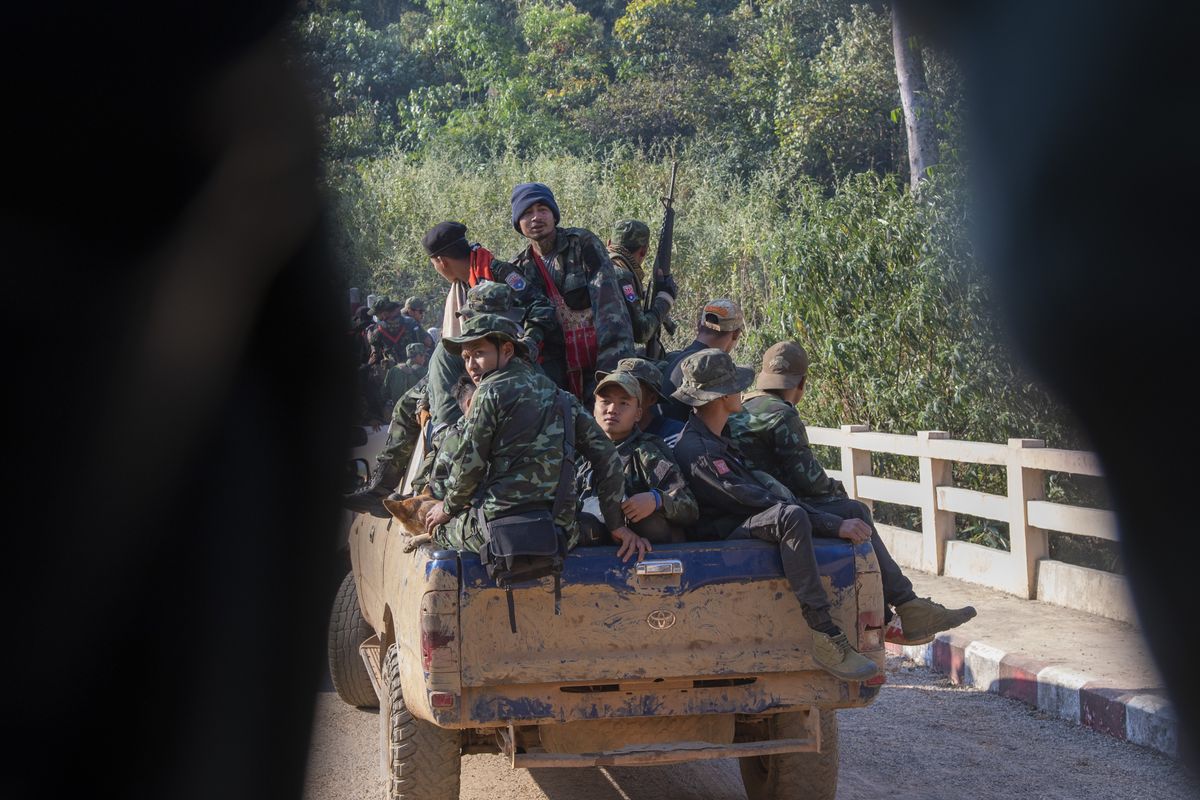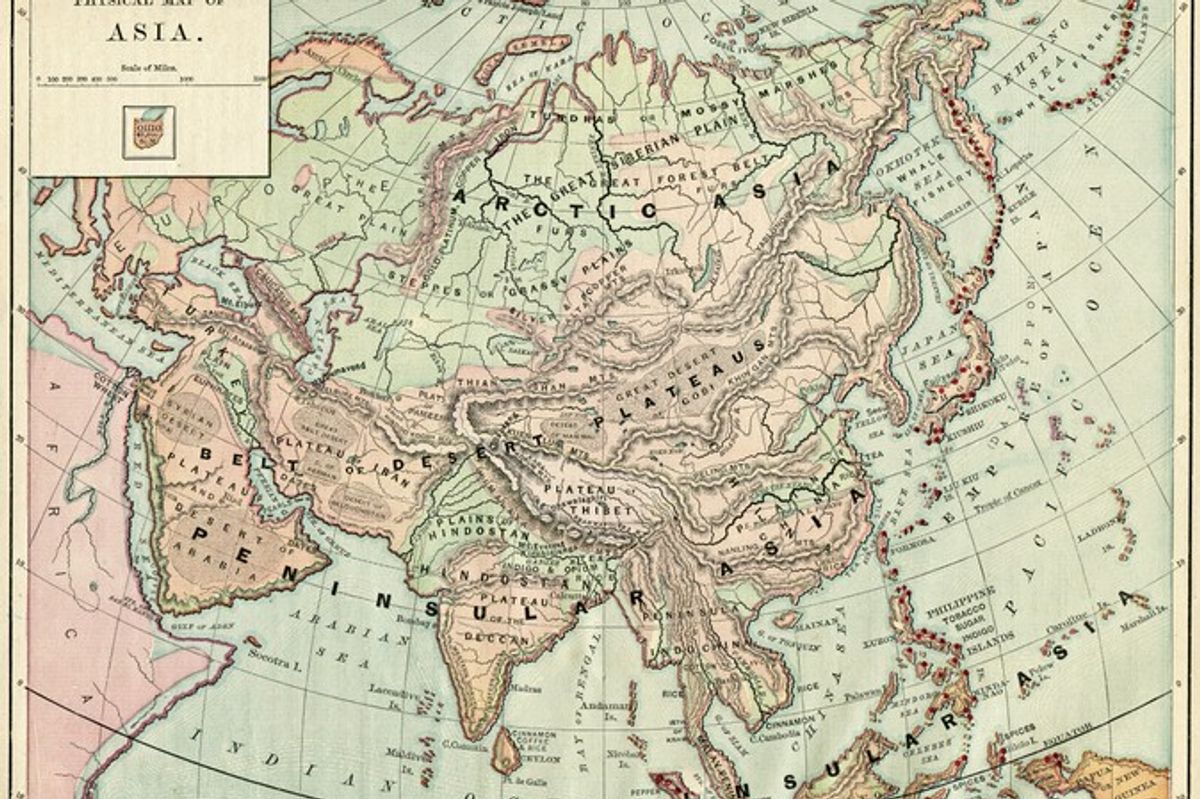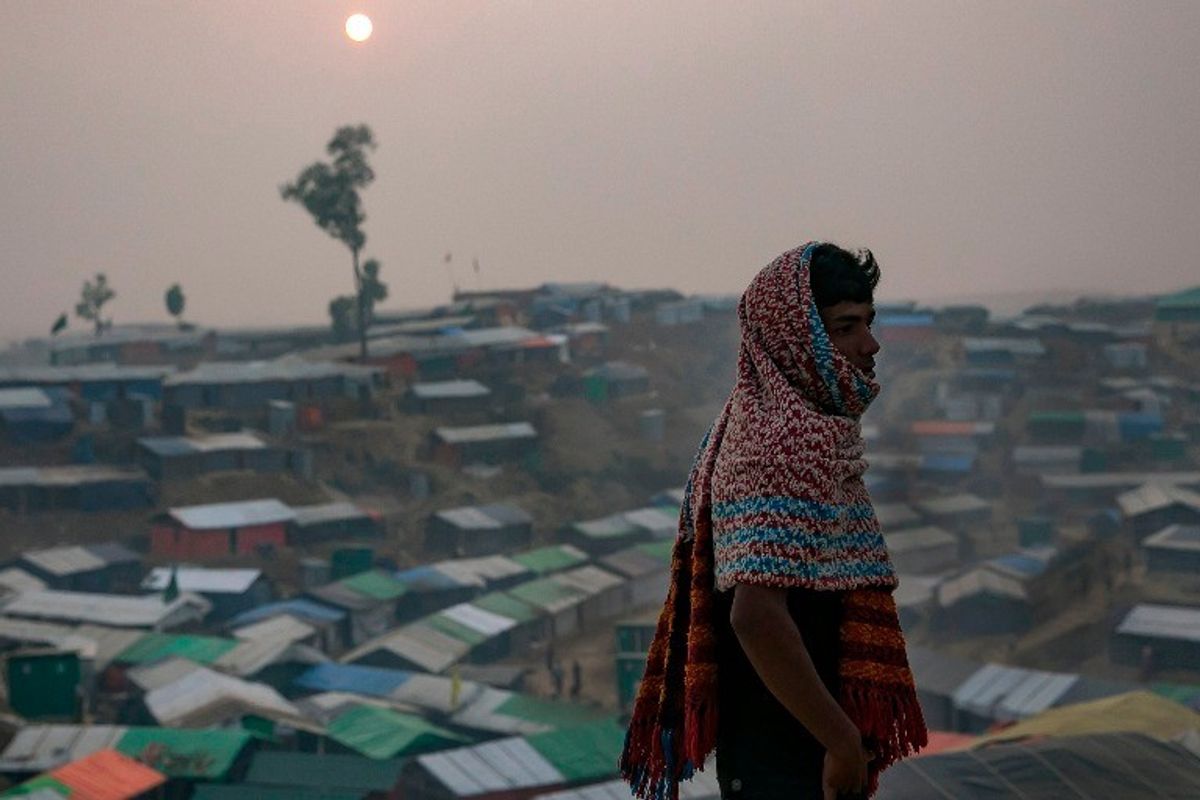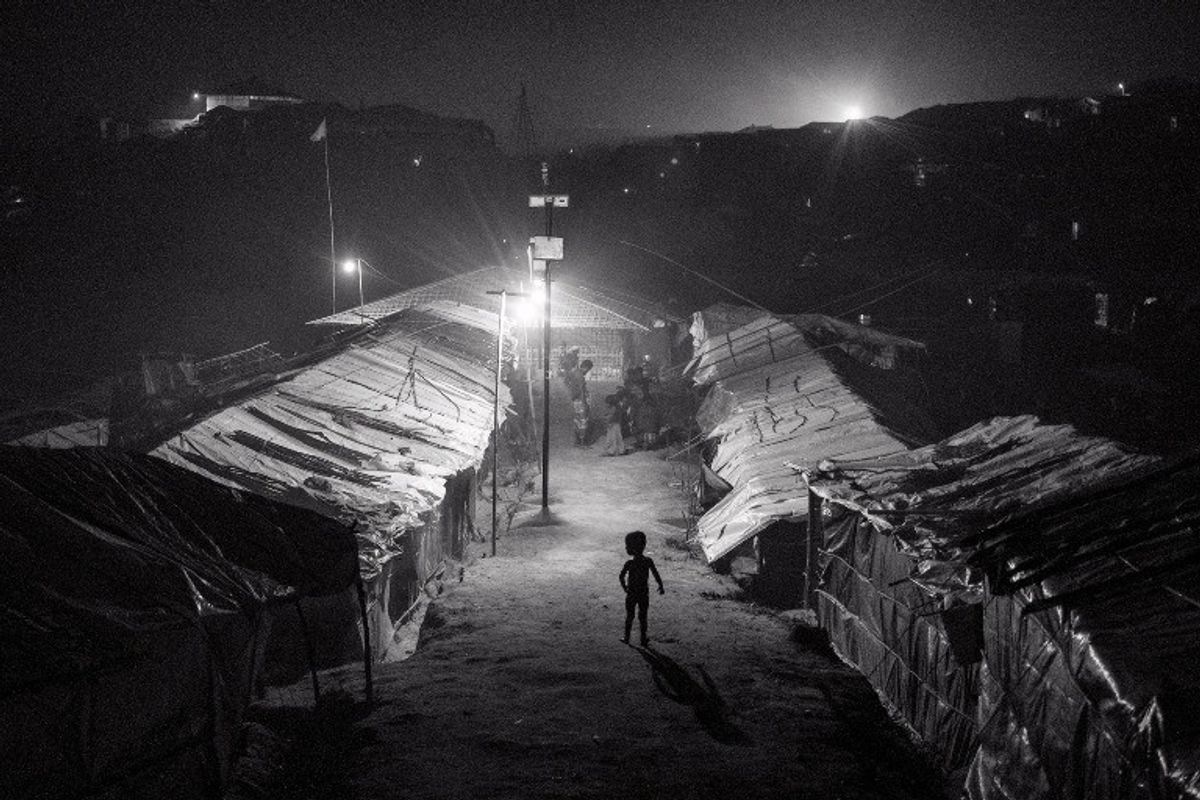A major humanitarian catastrophe is unfolding in Myanmar, as tens of thousands of people, the country’s Rohingya Muslim minority, flee the threat of ethnic cleansing carried out by the country’s government.
Rohingya civilians have been the target of village burnings, mass executions, disappearances and rape, according to the United Nations, and more than 120,000 have chosen to flee rather than risk a grimmer fate at home. Their plight does not happen in a vacuum, however, as Muslims around the world watch in horror, and the killings fit into a narrative that violent extremists use to recruit.
The path to refuge in neighboring Bangladesh is also full of danger, with women and children drowning as they try to escape across a river dividing the countries. Officials in Dhaka have also been reluctant to provide support for Rohingya, and only recently, and partially, opened up border crossings to the desperate sea of people. On Wednesday, there were new, unconfirmed reports that Myanmar had begun to mine the border between the two countries, preventing the Rohingya from returning.
The justification the Myanmar government uses to explain its campaign in Rakhine State, where most of Myanmar’s one million Rohingya live, is to stamp out a small group of Rohingya insurgents, but Rohingya activists say that is merely a pretext for carrying out gross violations of human rights. The current wave of state violence against the Rohingya began, and intensified, after insurgents attacked a police outpost in late 2016.
In February 2017, the United Nations released a report based on interviews conducted with Rohingya. In it, members of the minority group described witnessing and experiencing horrific levels of violence at the hands of the army or allied Buddhist militias. When they set homes ablaze, Rohingya say, even children have been burned alive.
“It was at around 3 a.m. in the morning; we were sleeping, when military attacked our village,” an 18-year-old Rohingya woman told U.N. investigators. “We ran outside in panic, leaving my five-year-old brother behind in the house. The military came and set fire to the house, burning my brother alive. We found his burnt body in the morning, after the military had left the village.”
Buddhist homes are spared by the army, indicating that the campaign targets the minority ethnic and religious group specifically. The U.N. does not, however, use the term genocide, an indictable crime under international law. As far back as 2013, Human Rights Watch condemned the government and Buddhist monks for encouraging violence by Buddhists against Muslims.
Myanmar’s leader, the Nobel laureate Aung San Suu Kyi, on Tuesday denounced reports of atrocities as “misinformation” and has said there are violent elements on both sides. She made these statements during a call with Turkish President Recep Tayyip Erdogan, who has pledged aid to the stricken region. In sometimes bombastic or militant terms, Erdogan has styled himself as an advocate for Muslims around the world, a posture that helps him consolidate power at home.
U.S. President Donald Trump’s administration has publicly backed away from making human rights a centerpiece of foreign policy or intervening in humanitarian crises. But the plight of the Rohingya and U.S. national security are intertwined. As Muslims around the world watch the suffering of the Rohingya, and see other countries fail to help, the “us versus them” message of violent extremists has the chance to take hold in young, impressionable minds.
Farah Pandith, the former State Department Special Representative to Muslim Communities, who visited the Rohingya in 2012, told The Cipher Brief that the conflict there revolves around a narrative of identity that pits marginalized Muslims against enemies that seek their destruction.
“This is going to have tremendous impact on the region, and the mindset of kids in the region, in India, in Pakistan, in Afghanistan, and Central Asia,” Pandith said. “The Rohingya story is not being told in America. But it is a rallying call for terrorist organizations. When you see what happened in Bosnia and the impact of the radicalization for European Muslim youth, many were moved to violent action because of the belief that Muslims don’t matter. That they can be decimated.”
Pandith said the U.S. must ratchet up political pressure on Suu Kyi’s government to try to stop the slaughter of civilians, or extremist groups will continue to find fodder for their message in the plight of the Rohingya.
“ISIS and al Qaeda do not discriminate on which countries they’d like to go to and pick from. They are taking anybody they can to recruit,” she said. “What I’m desperately afraid of is the ability for these groups to hijack this conversation the way groups hijacked the Bosnian situation.”
How to fix the crisis is unclear. Even minor attacks by Rohingya insurgents seem to invite overwhelming response by the Burmese government against non-combatants. In the next week, hundreds could starve waiting for help hiding in the mountains. Bangladesh opening up its border to the Rohingya appears to be the only bright spot, but once the Rohingya reach Bangladesh, they are still homeless and stateless, joining millions of refugees and displaced people around the world.
Wakar Uddin, Director General of Arakan Rohingya Union, said that one of the tasks for any political intervention in the region would be to convince the insurgents to lay down their arms, Uddin said.
“The insurgent group claims that they are fighting for the rights of Rohingya people. Nobody can prove if they are connected internationally or not. But there are rumors floating around that they are getting money from outside sources. What I know is that this insurgent group is not sophisticated, they have clearly played into the hands of the Myanmar government. These insurgents do not have any philosophy. They always miscalculate. They do not seem to understand the consequences, so these are just a group of thugs without any philosophy, any strategy,” he said. “They should surrender and give the chance to people who are trying to find a political solution. This insurgent group is hampering the political solution.”
Finding a political solution by putting diplomatic pressure on Myanmar’s government, however, means bringing up the potential for prosecution of the leaders responsible for the massacres. The U.N. could also consider sending in peacekeepers, but Uddin believes strong resolutions will be blocked by Russia and China.
“The United Nations Security Council needs to send armed forces like they did in Africa and other places. There has to be a safe zone for the people. Diplomacy doesn’t seem to be working, unless it is extraordinary pressure,” Uddin said. “There have to be consequences for the government. The international community needs to bring up the International Criminal Court, and that those who are responsible in the Myanmar government will be brought to justice in The Hague. It is very relevant now. It should be a priority in the security council just like North Korea.”
Wilson Dizard is a national security editor at The Cipher Brief. Follow him on Twitter @willdizard.













